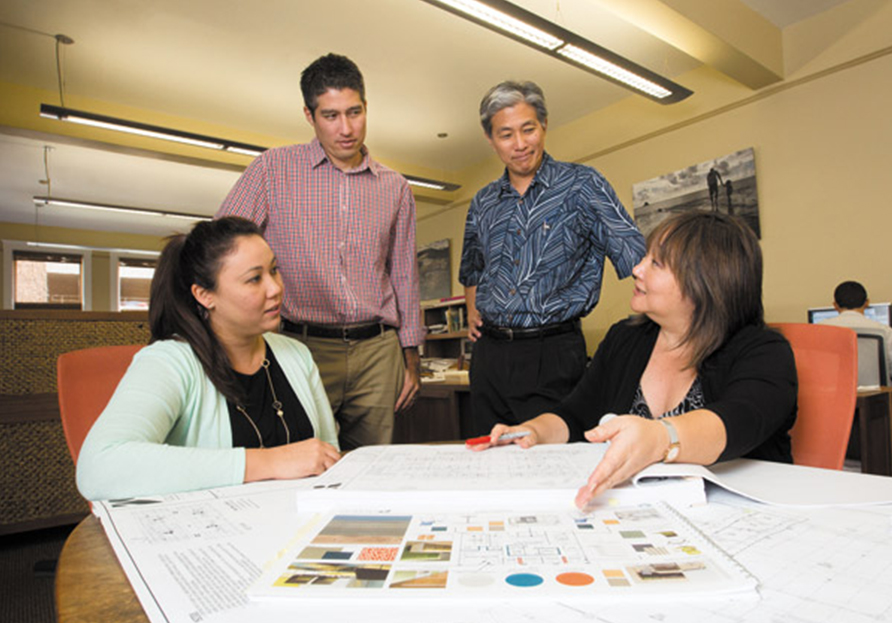The center of our jobs as architects, planners, engineers and interior designers is striking just the right balance between building something new and working with what is already there.
As much as we enjoy working with a blank canvas, some projects are much better off not disturbing the existing landscape. Historical structures or treasured landmarks, for example, hold cultural significance and often sentimental value that supersede a shiny new building.
Sometimes, all a project needs is a fresh set of eyes and some TLC to transform its underused self into something grand. The architectural term for breathing new life into a building and using an old site or building for a purpose other than for which it was built or designed is called adaptive reuse.
We are privileged to work with some of the industry’s most visionary leaders from companies such as Kamehameha Schools, Hawaii Pacific University and First Hawaiian Bank. Here are just a few of the adaptive reuse projects, gems in our community, Group 70 currently is working on:
Hawaii Pacific University at Aloha Tower: Iconic Aloha Tower Marketplace will be revitalized into a vibrant 217,000-square-foot mixed-use residential and commercial center designed to serve the community and HPU students. Residential housing for nearly 300 students will accompany a rich mix of retail, restaurants and sundries.
Haleiwa Store Lots: Kamehameha Schools’ $16 million revitalization of the famous North Shore destination will turn it into a new gathering place for locals and visitors, while preserving its unique local character. This spring, Matsumoto’s will be joined by 12 other shops, restaurants, offices, new parking stalls, two central gathering courtyards, public restrooms and a 650-foot walkway.
First Hawaiian Bank (Waiakea branch): Converting a former Blockbuster Video store in Hilo into a “bank of the future,” the new innovative design will provide clients with 24-hour access to banking; personal, more concierge-style customer support; and the ability to provide extended business banking hours. In addition, sustainable elements were incorporated, such as energy-efficient lighting.
